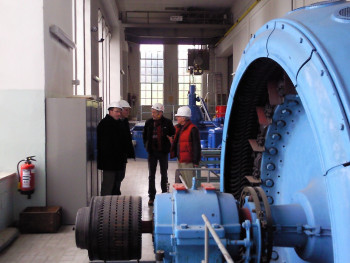Company culture arises from the history of an organisation. Experiences become habits and convictions, and questioning them becomes difficult. (”It’s just the way we do things here.”) If the company culture fails to keep up with the success of the company or the wider situation on the market, customers leave, it becomes more difficult to acquire new customers, and top employees jump ship to join the competition. Once the reputation of the company as a fair, modern employer starts to crumble, it becomes increasingly challenging to recruit talented and highly qualified staff.
Even for long-term market leaders get under pressure and frequently experience a disruptive external transformation that inevitably determines the future path of the company.
 Why should you manage change?
Why should you manage change?
Lethargy and inertia are frequent afflictions in corporate environments. Just think of the rigid stances expressed during mergers or restructuring. This makes the rarity of systematic change management all the more surprising – after all, economic success crucially depends on the depth and quality of integration.


 Processes of change – how can we help you?
Processes of change – how can we help you?